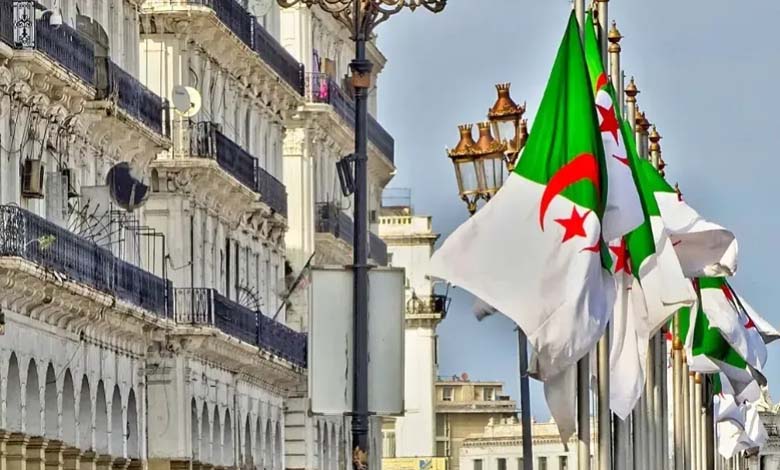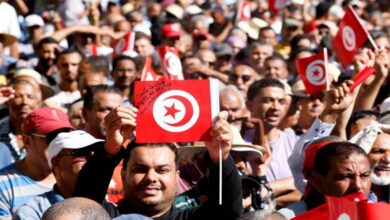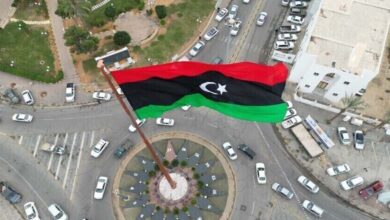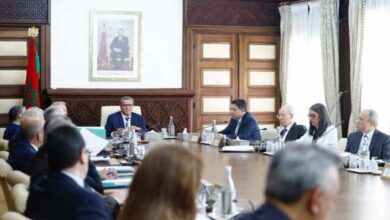Algeria in Trouble After Being Placed on the Blacklist

Algeria is facing a critical moment after the European Parliament voted this week to include it on the list of “high-risk” countries for money laundering and terrorist financing. According to the French newspaper Le Journal du Dimanche, this decision follows investigations that exposed shortcomings in financial transaction oversight, putting the Algerian government in an uncomfortable position before the global financial and economic community.
-
Rising tensions between authorities and unions raise fears of a social explosion in Algeria
-
French Media Accuse Algeria of Using ‘Hostage Diplomacy’ to Blackmail Paris
The classification indicates a structural deficiency in Algeria’s national systems for combating money laundering and terrorism financing, despite earlier official statements claiming reforms were underway to strengthen these mechanisms.
The European Parliament’s decision places significant pressure on Algeria to reform its financial regulations, or risk serious economic consequences, along with further damage to its international reputation.
According to the same source, the decision was ratified on Wednesday by a broad majority of EU lawmakers, paving the way for stricter scrutiny of all financial transactions involving Algerian entities or individuals.
-
Algerian move to disrupt the Morocco-Mauritania rapprochement
-
EU Deepens Algeria’s Troubles by Placing It on Blacklist
This move is expected to hinder Algeria’s ability to attract much-needed foreign investment, at a time when the country is facing growing isolation in Africa and a severe diplomatic crisis with France.
Foreign companies operating in Algeria may also become increasingly wary, given the complex compliance procedures they will likely face when transferring funds or repatriating profits. European and international banks are expected to apply strict due diligence when dealing with Algerian financial transactions, requiring additional documentation to justify the source of funds.
The classification received support from several European lawmakers, including Laurence Trochu from the European Conservatives and Reformists group, who described the vote as “good news” in a post on the X platform.
-
Crisis between Mali and Algeria casts a shadow over regional security
-
Rising Tensions Between Mali and Algeria
This development comes about a month after the European Union placed Algeria on what is known as the “blacklist” or “grey list” concerning anti-money laundering standards—a decision that angered Algerian authorities. As is often the case during times of diplomatic strain, Algeria denounced the move as politically motivated, claiming that it resulted from the politicization of EU-Algeria disagreements. However, EU institutions insist their methodology is based on technical criteria to safeguard the financial system.
Well-informed sources stated that the EU’s measure will result in additional compliance fees for companies and individuals engaged in financial transactions with Algeria, due to the need for more thorough screening. This is likely to raise the prices of goods and services, affecting Algerian consumers directly.
-
Moroccan Diplomatic Expulsion Reveals Algeria’s Discontent with Rabat’s Successes
-
Legislative Initiative to Eliminate the French Version of the Official Gazette in Algeria
The Algerian government and private sector will also face greater difficulty securing international loans or funding, especially from institutions that tie support to transparency benchmarks, such as the IMF and OECD.
This classification implies that Algeria’s financial system contains vulnerabilities that could be exploited to support illicit activities, including the financing of terrorist groups. These weaknesses may stem from lack of transparency in certain sectors—such as real estate—or from inadequate anti-money laundering procedures.
Algeria is now compelled to accelerate reforms in money laundering prevention and to enhance financial transparency. The country must also work with the Financial Action Task Force (FATF) to establish a comprehensive action plan to address the identified shortcomings in its regulatory framework.
-
Morocco’s Strong Position Pushes Algeria to Avoid Raising the Sahara Issue at the UN Security Council
-
“The Snare of the Trap” Documents Algeria’s Cross-Border Violations
-
Chaos Strikes Algerian Media: Exaggerated Propaganda for Tebboune Involves a Daily Newspaper
-
Libya-Mauritania Agreement to Revitalize the Arab Maghreb Union Undermines Algeria’s Plan












